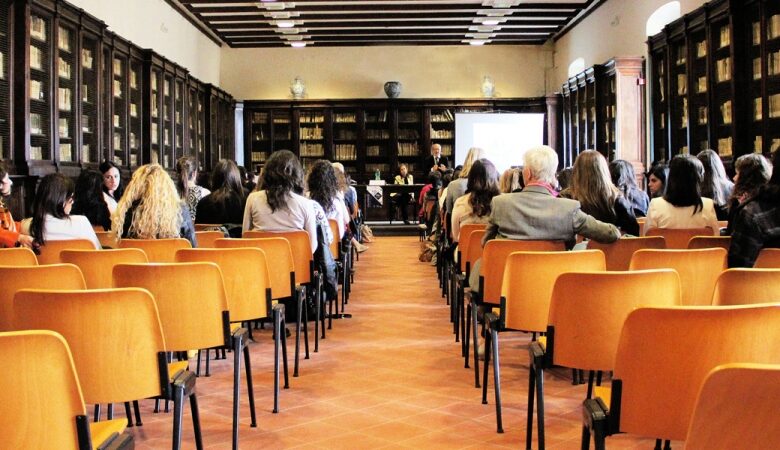Formal Training Requirements For Paranormal Investigators

Some argue that training is important in order to learn proper investigation techniques and to understand the scientific principles behind paranormal phenomena. Others argue that formal training is not necessary, as the best investigators are those who have a strong interest in the subject and who have developed their own unique approach to investigating.
As the number of public ghost events increases and fans of paranormal reality shows are encouraged to embark on ghost hunts themselves, more and more people are undertaking ghost hunts for the sheer fun of it. Of course ghost hunting at this level doesn’t call for the investigator to have any qualifications, but that’s not to say they might not find some training useful as this might enhance their ghost hunting experience.
Although not required, having some understanding of the processes and the potential pitfalls of ghost hunting can help researchers to ensure that their investigations are conducted in a safe and responsible manner, and produce the best possible evidence.
For example, the ability to think critically and without preconceived notions about the case can help to ensure that the investigation is conducted in a professional and unbiased manner, and that any conclusions reached are based on solid evidence and reasoning. This can also help to prevent false claims or misinterpretations of evidence.
When it comes to learning about the equipment and methods commonly used in ghost hunting, there is currently no scientific evidence to suggest that any type of training can aid an investigator in seeing or detecting ghosts. The same is true of ghost hunting gadgets, many of which are based on pseudoscientific principles and are not supported by scientific evidence.
Although the effectiveness of devices like electromagnetic field (EMF) meters, thermal imaging cameras and audio recorders in detecting ghosts is often called into question, having an understanding of how they are used and why paranormal investigators choose to use them is beneficial. But, the reality is that understanding how to use an EMF detector properly with its one button isn’t too challenging, the tricky bit is interpreting the results and ruling out false positives, this comes with practice and experience.
The ability to debunk potential evidence of the paranormal is a very important skill for any investigator. One of the main goals of any investigation should be to evaluate the evidence and try to determine the most likely explanation for any strange occurrences. This means considering both natural and supernatural explanations, and ruling out any potential natural causes before considering paranormal explanations.
Debunking skills are critical in this process, as they allow investigators to identify and eliminate any false positives or potential sources of error in their data. This helps to ensure that the evidence being used to support a paranormal explanation is sound and reliable.
For those that move beyond ghost hunting as a hobby and conduct private investigations, it could be argued that there is more of a need for formal training, but again this doesn’t take the form of learning how to detect a ghost, but rather the skills necessary to provide a duty of care to clients, especially when dealing with vulnerable members of the public who believe their house is haunted.
You should maintain a professional demeanour at all times, which is important for building trust with clients and maintaining a positive working relationship. Running around screaming at any knock or bang may only make things worse. You should also possess the ability to evaluate evidence and arguments and to make sound judgments, which is important for determining the most likely explanation for any strange occurrences.
Since paranormal activity rarely happens on demand, most credible investigators are forced to rely on witness testimonies as a way of understanding a haunting. This makes having good interpersonal and interviewing skills amongst the most important in a paranormal investigator’s arsenal. The ability to conduct a valuable witness interview allows an investigator to gather detailed information on the case and to build a more complete picture of the haunting.
When conducting an interview, an investigator should have good communication skills and be able to elicit detailed information about the client’s experiences. This can include asking open-ended questions, actively listening to the client’s responses, and following up with additional questions to gain a complete understanding of the situation.
In order to build trust with the client and ensure that they feel comfortable sharing their experiences, it’s also important to have empathy, which will help you understand and share the feelings of the client. You should also be patient and non-judgmental. These additional skills are important in order to communicate effectively with people who may be experiencing distress. Dealing with vulnerable people may take a lot of time, and being non-judgmental is important when dealing with clients who may hold beliefs that differ from your own.
This could include training in counselling or psychology to gain a better understanding of human behaviour and emotions, which can be useful in dealing with vulnerable or distressed clients. Developing your communication skills can help investigators to communicate effectively with clients, and training in ethics and boundaries can help investigators to understand the importance of maintaining professional boundaries and to conduct investigations in an ethical manner.
Ultimately, whether or not formal training is necessary depends partly on the individual and their goals as a paranormal investigator, but more importantly on who they intend to help or work with when conducting their investigations.



